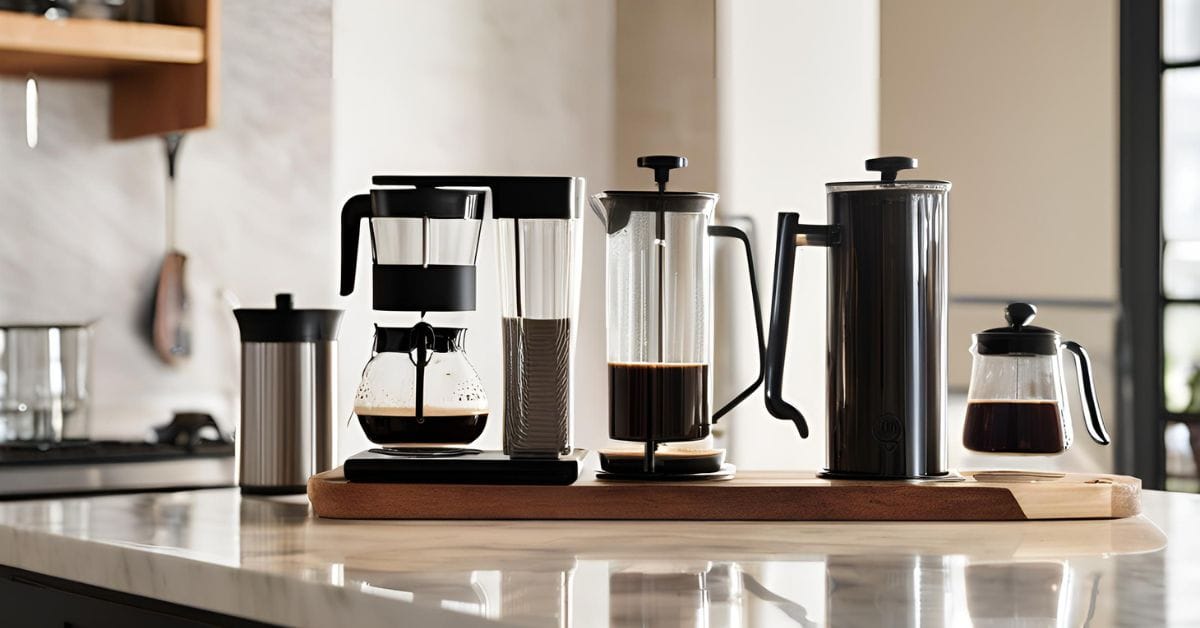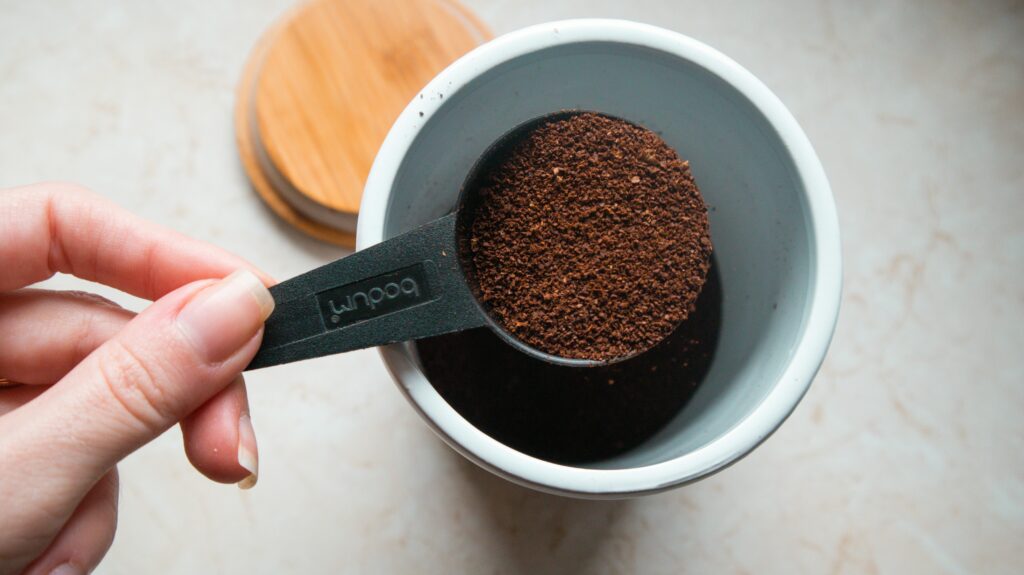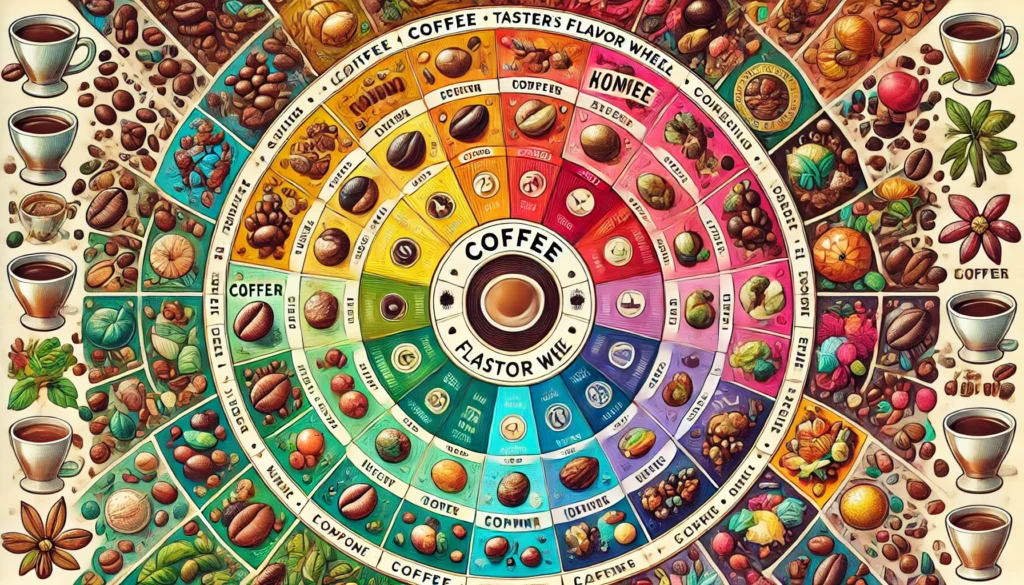Coffee is more than just a drink—it’s a daily ritual, a pick-me-up, and a comforting friend for many of us. But with all the benefits that coffee brings, it’s natural to wonder how much coffee is too much. Over my years of learning about coffee, I’ve come across different studies and guidelines, and it’s clear that understanding your daily coffee consumption is key to making sure you enjoy all the benefits without any drawbacks.
In this article, we’ll explore what constitutes a healthy daily intake, the potential effects of too much caffeine, and tips on finding your personal coffee balance. Whether you’re a casual drinker or a dedicated aficionado, knowing how much coffee is right for you can help you enjoy it responsibly.
Table of Contents
ToggleRecommended Daily Intake of Coffee

| Recommended Intake | Cups of Coffee | Caffeine (mg) | Notes |
|---|---|---|---|
| Healthy Adults | 3-4 | 300-400 | Generally safe, provides health benefits |
| Pregnant Women | 1-2 | 200 | Lower limit due to pregnancy safety |
| Adolescents | 1 | 100 | Sensitive to caffeine effects |
| Those with Heart Issues | 1-2 | 100-200 | Limit intake due to cardiovascular risks |
According to various health guidelines, the average healthy adult can safely consume 3-4 cups of coffee per day, which translates to about 300-400 mg of caffeine. This level of intake has been associated with a variety of health benefits, from improved alertness to a reduced risk of certain diseases. Coffee also promotes cardiovascular health by potentially lowering the risk of heart disease. However, it’s important to remember that individual tolerance levels vary, so what works for one person may not be ideal for another.
Factors That Affect Your Coffee Limit
There are several factors that can affect how much coffee you should drink each day:
Body Weight and Metabolism: People with a higher body weight may tolerate more caffeine, while metabolism speed can also affect caffeine sensitivity.
Sensitivity to Caffeine: Some individuals are more sensitive to caffeine, experiencing jitteriness, heart palpitations, or anxiety after just one cup, while others can drink multiple cups without issue.
Pregnancy: For pregnant women, the recommended daily intake of coffee is generally lower—around 200 mg of caffeine, or about 1-2 cups of coffee.
Health Conditions: Those with certain health conditions, such as high blood pressure or acid reflux, may need to limit their caffeine intake further.
For a more personalized approach to determining your ideal intake, check out our What Coffee Is Best for Me Quiz to get insights based on your preferences and lifestyle.
Benefits of Moderate Coffee Consumption

Statistics:
Approximately 64% of Americans drink at least one cup of coffee per day.
Moderate coffee drinkers are 20-30% less likely to develop Type 2 diabetes.
Improved Cognitive Function
Studies have shown that moderate coffee consumption can help enhance brain function, including memory retention and reaction time (Harvard T.H. Chan School of Public Health, 2024). It also boosts dopamine levels, enhancing mood and motivation, which is why so many people rely on it to start their day with energy. The caffeine in coffee acts as a stimulant, helping to boost focus, alertness, and overall mental performance.
Antioxidant Properties
Coffee is also a great source of antioxidants, which help fight inflammation and protect your cells from damage. In fact, coffee is one of the richest sources of antioxidants in the Western diet.
Reduced Risk of Certain Diseases
Regularly consuming a moderate amount of coffee has been linked to a reduced risk of certain diseases, such as Parkinson’s disease, Type 2 diabetes, and even some types of cancers. These benefits are most pronounced with a daily intake of 3-4 cups.
Risks of Excessive Coffee Consumption

Statistics:
Consuming more than 400 mg of caffeine daily can increase the risk of anxiety in 15-20% of individuals.
Increased Anxiety and Jitters
One of the most common effects of consuming too much coffee is increased anxiety. High doses of caffeine can lead to feelings of restlessness, jitteriness, and increased heart rate, particularly if your nervous system is sensitive to stimulants, particularly for those who are sensitive to caffeine.
Sleep Disturbances
Drinking coffee late in the day can interfere with your natural circadian rhythm, leading to difficulty falling asleep or staying asleep. Caffeine can remain in your system for several hours, with a half-life of about 5-6 hours, so it’s generally recommended to avoid coffee after 2 PM if you’re sensitive to its effects.
Digestive Issues
For some people, excessive coffee consumption can lead to digestive discomfort, such as acid reflux or an upset stomach. This is due to the natural acids present in coffee, which can irritate the stomach lining when consumed in large quantities.
To learn more about how to adjust your coffee habits for better health, check out our blog on How to Get Rid of Coffee Breath?.
Finding the Right Balance
Listen to Your Body
When determining your daily intake of coffee, it’s important to listen to your body. If you start feeling anxious, notice digestive discomfort, or find that your sleep is being affected, it may be a sign that you need to cut back.
Try Decaf Options
If you love the taste of coffee but want to reduce your caffeine intake, consider switching to decaf coffee for some of your cups throughout the day. Decaf still provides the comforting flavors you love without the stimulating effects of caffeine.
Use a Coffee Calculator
If you’re unsure about how much coffee fits into your daily routine, use our Ultimate Coffee Brew Calculator to help determine your ideal intake based on your lifestyle and preferences.
How Caffeine Affects Your Body?
Caffeine blocks certain brain chemicals that promote relaxation and sleepiness, helping you feel more alert and awake. By blocking these receptors, caffeine increases dopamine levels and stimulates the central nervous system, which results in increased alertness and decreased fatigue. This mechanism is why caffeine is often referred to as a stimulant. However, excessive consumption can lead to overstimulation of the nervous system, contributing to anxiety, restlessness, and other negative health effects.
What’s the Ideal Coffee Intake?
For healthy adults, the ideal coffee intake is around 3-4 cups per day, providing a balance of health benefits and minimal side effects. However, personal tolerance can vary, so it’s crucial to listen to your body and adjust accordingly.
FAQs: Daily Intake of Coffee
How Does Caffeine Affect Blood Pressure?
Answer: Caffeine can cause a temporary increase in blood pressure, especially in individuals sensitive to its effects. If you have hypertension, monitor your intake closely and consult with your doctor.
Does Drinking Coffee Dehydrate You?
Answer: Contrary to popular belief, moderate coffee consumption does not cause dehydration. While caffeine has mild diuretic effects, the water content in coffee offsets this, making it a hydrating beverage overall.
Can Coffee Help with Weight Loss?
Answer: Coffee can aid in weight loss by boosting metabolism and promoting fat burning, particularly when consumed before exercise. However, the effect varies by individual and should be part of a balanced diet and active lifestyle.
How Much Coffee Is Too Much?
Answer: For most people, more than 4 cups of coffee per day can lead to negative side effects like anxiety, increased heart rate, or digestive issues. The key is to find a balance that works for your body.
Is It Safe to Drink Coffee Every Day?
Answer: Yes, drinking coffee every day is generally safe for healthy adults, as long as consumption is moderate (around 3-4 cups per day). It’s important to adjust your intake based on how your body reacts.
Can I Drink Coffee on an Empty Stomach?
Answer: Drinking coffee on an empty stomach may cause digestive issues for some people, such as acid reflux. If you experience discomfort, try eating something before your first cup.
Conclusion
Achieving a balanced daily coffee intake allows you to enjoy its health benefits while minimizing potential side effects. By understanding your body’s response to caffeine and adjusting your consumption accordingly, you can continue to enjoy coffee as part of a healthy lifestyle. Whether you’re savoring your morning cup or enjoying an afternoon boost, let your body’s signals guide you to a healthy, enjoyable coffee habit.
References
- Johns Hopkins Medicine: 9 Health Benefits of Coffee
- Harvard T.H. Chan School of Public Health: Coffee and Health
- National Coffee Association USA: www.ncausa.org
- Healthline: Daily Caffeine Intake and Health
- Mayo Clinic: Caffeine: How Much Is Too Much?
Final Thoughts
Coffee is a beloved part of many of our daily routines, but like anything, moderation is crucial to avoid overconsumption and potential health risks. Understanding your daily intake of coffee can help you enjoy all the benefits without the negative side effects. Whether you’re a fan of bold brews or prefer something lighter, the key is finding a balance that works for you.
Disclaimer
The information in this article is intended for general informational purposes only and should not be taken as medical advice. Please consult a healthcare professional for advice tailored to your individual circumstances.
Your Turn
How many cups of coffee do you drink each day? Have you found your perfect balance? I’d love to hear about your experiences—leave a comment or connect with me on social media!












































